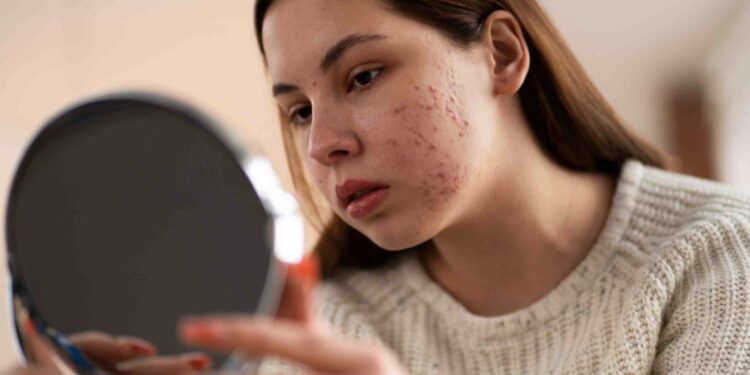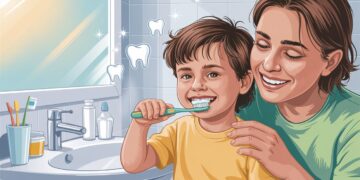Acne is a common skin condition that affects people of all ages, but it’s especially prevalent among teenagers and young adults. While genetics play a significant role in determining who gets acne, lifestyle factors can also have a big impact on your skin’s health. In this article, we’ll explore how stress, diet, exercise, sleep, and other factors can influence acne and what steps you can take to minimize acne.
Understanding Acne
Acne occurs when the pores of your skin become blocked with oil, dead skin cells, and bacteria. This can lead to blackheads, whiteheads, pimples, and deeper lumps. It’s most common on the face, but it can also appear on the back, chest, and shoulders. While acne is not a serious health threat, it can cause scars and have a significant impact on a person’s self-esteem.
Stress and Acne
The Connection Between Stress and Skin Health
Stress is a common trigger for acne flare-ups. When you’re stressed, your body produces more androgens, a type of hormone that stimulates the oil glands and hair follicles in the skin, leading to acne. Managing stress is therefore crucial for maintaining clear skin.
Strategies for Reducing Stress
Practicing relaxation techniques such as deep breathing, meditation, and yoga can help lower stress levels. Ensuring you have time to unwind and engage in activities you enjoy is also important. Remember, managing stress is not only good for your skin but for your overall health as well.
Diet and Acne
The Impact of Diet on Skin Health
While the link between diet and acne is still being researched, certain foods may trigger breakouts in some people. High glycemic index foods, such as white bread and sugary snacks, can cause blood sugar levels to spike, potentially leading to acne.
Foods to Embrace and Avoid
Incorporating foods rich in omega-3 fatty acids, antioxidants, and vitamins can help combat inflammation and improve skin health. Consider adding more fish, nuts, and green leafy vegetables to your diet. Meanwhile, try to limit your intake of processed foods and those high in sugar and dairy products.
Exercise and Acne
Exercise’s Dual Role in Acne Management
Regular exercise can improve your skin’s appearance by increasing blood flow, which helps nourish skin cells and keep them vital. Sweat can also unclog pores and eliminate toxins. However, it’s important to wash your face properly after exercising to prevent sweat from contributing to acne.
Best Practices for Exercising
Wear loose, breathable clothing to minimize irritation and ensure you cleanse your skin after sweating. Also, staying hydrated is crucial, as it can help flush out toxins more effectively.
Sleep and Acne
The Importance of Sleep for Skin Health
Getting enough sleep is essential for skin health. During sleep, your body repairs itself from the day’s stress. Lack of sleep can lead to increased stress, which, as mentioned, can aggravate acne. Aim for 7-9 hours of quality sleep per night to support skin health.
Tips for Better Sleep
Create a relaxing bedtime routine to help signal your body that it’s time to wind down. Avoid screens and caffeine before bed, as they can disrupt your sleep cycle.
Additional Tips for Acne Prevention
Skincare Routine
Maintaining a consistent skincare routine is vital. Use gentle cleansers and avoid over-washing and scrubbing, which can irritate your skin. Non-comedogenic products are best as they won’t clog your pores.
Hydration and Sun Protection
Drink plenty of water throughout the day to stay hydrated. Also, protect your skin from the sun by using a broad-spectrum sunscreen, as some acne medications can make your skin more sensitive to sunlight.
Conclusion
Preventing acne involves a holistic approach that includes managing stress, eating a balanced diet, exercising regularly, and getting enough sleep. While it’s not always possible to prevent acne entirely, following these tips can help reduce the severity and frequency of breakouts. Remember, if you’re struggling with acne, consulting with a dermatologist can provide personalized advice and treatment options.

















